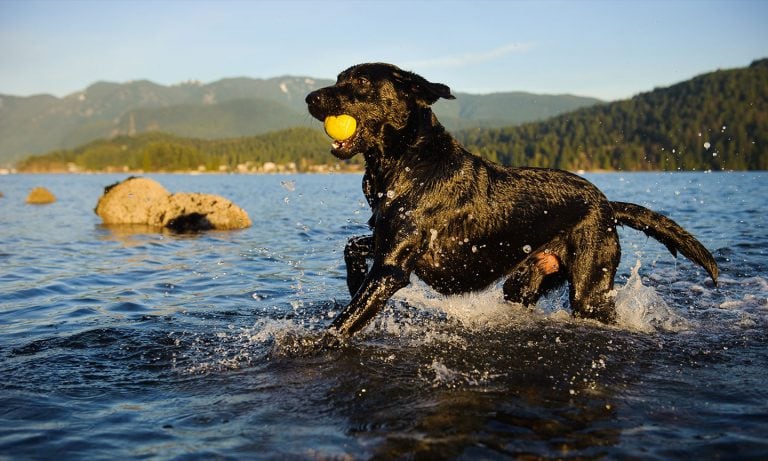Boxer vs Labrador Retriever

Breed Snapshot
Best For
Energetic and playful, Boxers do well in households with active parents who can provide regular exercise and playtime and in homes that have a big yard where they can stretch their legs. Loyal and affectionate,...
Energetic and playful, Boxers do well in households with active parents who can provide regular exercise and playtime and in homes that have a big yard where they can stretch their legs. Loyal and affectionate, Boxers thrive on social interaction with their family.
Boxer Temperament
With their muscular physique and dark eyes, Boxers might seem tough and serious. But don’t be fooled! The ability to make many two- and four-legged friends is one of the Boxer’s greatest strengths. Silly pups at heart, they’re like a kid in a dog’s body, whi...
With their muscular physique and dark eyes, Boxers might seem tough and serious. But don’t be fooled! The ability to make many two- and four-legged friends is one of the Boxer’s greatest strengths. Silly pups at heart, they’re like a kid in a dog’s body, which may explain why Boxers and kids get along so well. They’ll never cease to put a smile on your face with their clown-like antics. You can often catch them sitting with their rear legs out in front of them (like people) and rolling back into a lazy dog position. They’re also prone to zoomies and stopping on a dime to dole out sloppy, wet kisses. If your dream dog is athletic and affectionate, the Boxer’s for you.
Often described as being more human than dog, Boxers are known to be quite sensitive. They’ll work 24/7 to please their loved ones, but this desire to please means they can get their feelings hurt. (Sad puppy dog eyes warning!) Originally bred to serve as guard dogs, Boxers perform brilliantly as service, assistance and therapy dogs, and in roles such as drug detection and search-and-rescue. However, some Boxers may not get along well with dogs they don’t know and of the same sex.
Boxer Traits

Breed Snapshot
Best For
The Labrador Retriever is one of the most popular dog breeds in America, known for their friendliness, intelligence and outgoing nature. These high-energy, athletic dogs require ample exercise and thrive in active households.
Labrador Retriever Temperament
Cheerful and animated, this large dog breed has stamina and energy to spare, able to keep up with your family and all your activities. You’ll want to funnel that energy into positive outlets, like outdoor activities and training. And thanks to their high intelligence, learning commands and tricks com...
Cheerful and animated, this large dog breed has stamina and energy to spare, able to keep up with your family and all your activities. You’ll want to funnel that energy into positive outlets, like outdoor activities and training. And thanks to their high intelligence, learning commands and tricks come relativity easy for them. Labrador dogs love having a job to do and excel at things like agility courses and, just like their name implies, retrieving items. In fact, their superior intelligence is why they often make great assistance dogs, working as therapy or service animals.
A people-pleaser, Labrador Retrievers have a pleasant personality and love interacting with humans. Get ready to be showered with lots of affection! They also easily make friends with dogs and other animals, including cats, although not all cats are as excited to meet them as they are—a Lab’s large size and high energy level can be a bit intimidating. Slow and controlled introductions to other family pets will help make the transition go smoothly. Considering the staying power of the Labrador dog breed’s popularity, it’s a safe bet your Lab will fit right in with the all the loved ones you choose to introduce into their life.
While they’re generally good-natured, like any dog breed, Labs may develop aggressive tendencies if they don’t receive proper training or have experienced abuse. Addressing any biting issues early on, providing proper socialization when they are puppies (aka safely exposing them to lots of new people, places and things) and working with a professional dog trainer can help avoid behavioral issues when they get older.




